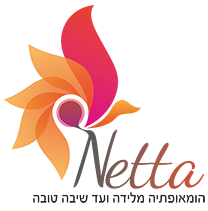 Classical homeopathy is a medicine that provides a natural and accurate solution to a number of varying conditions including: emotional, mental, chronic, and acute physical illnesses.
Classical homeopathy is a medicine that provides a natural and accurate solution to a number of varying conditions including: emotional, mental, chronic, and acute physical illnesses.
Homeopathy is suitable for all ages. It is safe during pregnancy and childbirth as well. It is not addictive and has no side effects. In addition to helping with the problem itself, the reason for which the patient made contact in the first place, homeopathy has an “added value”. Through treatment, patients will experience an improvement to both their physical and emotional wellbeing. For example: strengthening of the immune system, increased physical strength, vitality, joy, vigor and motivation to mobilize positive change in their life.
The Roots of Homeopathy
Homeopathy (which is derived from the Greek words “homo” meaning- similar, and “patia” meaning- suffering), is a medicine that is over 200 years old. Homeopathy regards the person in his/her entirety, and treats them as a whole, one entity, emphasizing the intrinsic connection between the body and the mind. The law of medicine was first established by Hippocrates over 2400 years ago, however it was first truly developed and implemented by Dr. Samuel Hahnemann (1755-1843),
a pharmacist, chemist, physicist, astronomer mathematician, physician and musician.
In 1755, Hahnemann began studying medicine in Leipzig. He opened a small practice which lasted only a short time, and soon had to shut it down. He spent many years traveling, wandering from place to place, and feeling frustrated by the ineffective medical practices of the era. Fortunately for Hahnemann, he was not only fluent in German, but in the English, French and Italian languages as well. This helped him become a successful sought after translator. While translating William Cullen’s “Materia Medica” from English to German, he questioned Cullen’s explanations of the powers of the Peruvian bark (Cinchona) to reduce fever as a treatment for malaria.
In order to prove his theory, Hahnemann conducted the first experiment on himself. An experiment known in history as the “Peruvian bark experiment”. In a series of repeated trials, he noticed the pathological effects after consuming Cinchona were very similar to those of malaria. He wanted to check if substances that cause a type of fever will also cure types of fever. Hahnemann indeed experienced symptoms of malaria (fever), but formed an opposing hypothesis to the one that appeared in the book he was translating. In 1796, he published an article confirming the healing powers of a number of drugs and several experiments testing past principles. The rule he coined, is called “like heals like” (Similia Similibus Curentur) and this is the first and foremost principle in homeopathy.
What Can Homeopathy Treat?
Almost everything.
Homeopathy is indeed an alternative form of medicine. It is alternative to conventional medicine, because, there is no attempt to classify people according to their illnesses. Instead, the emphasis is put on treating each individual based on the symptoms he/she describes; even in the absence of any medical terminology to describe them. In essence, I focus on treating the individual’s physical and emotional response to said symptoms, focusing on the root of the problem not the symptoms.
Classical homeopathy is a holistic multi-system treatment, so the therapy is not quick and/or superficial, but causes the individual to harness the powers that exist within themselves in order to cope with their challenges in an authentic and healthy way. This holds true whether the patient is dealing with an illness or with emotional challenges.
The homeopathic solution will not only provide immediate relief. It will also, provide an effective and natural solution because it will touch at the very root of the issue. During treatment, we delve deep to identify the source of where the problems initiated, and will thereby have a lasting, positive, and permanent effect on coping with a wide range of issues.
Homeopathic therapy is suitable to anyone no matter their age, from infancy to senior citizens, and is especially recommended during transitional periods in life: pregnancy, childbirth, breastfeeding, for infants, for toddlers transitioning from “infant to child”, for children, for adolescents transitioning from children to adults, for adults, and of course for women going through menopause as well.
Want to Hear More About Homeopathy?
You are welcome to read more via the articles on my website, look through the FAQs that I have been asked throughout the years about classical homeopathy, or the best way is to simply contact me by phone or email and I’ll be happy to personally answer any queries you may have.
